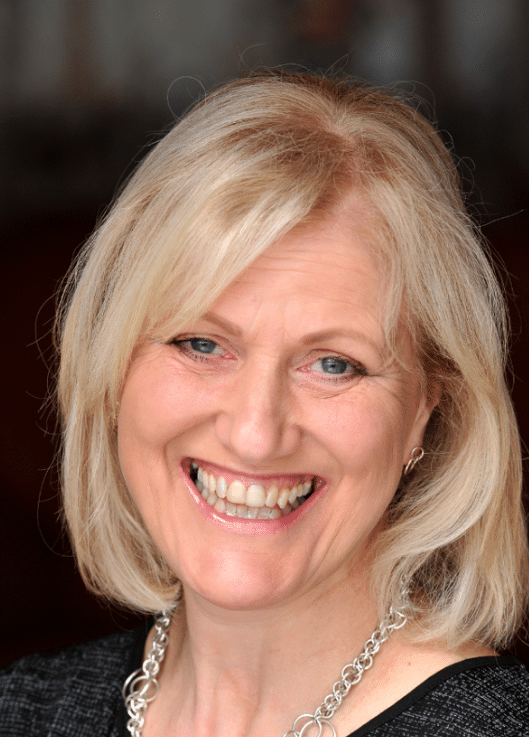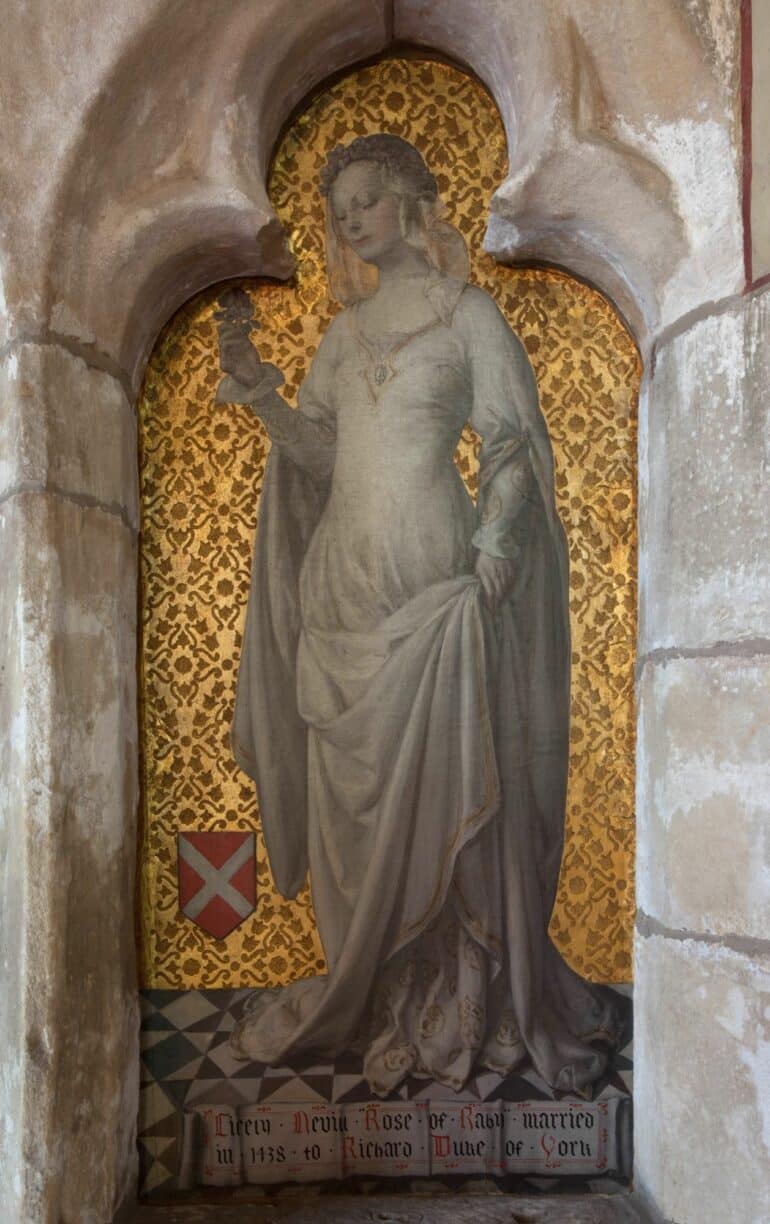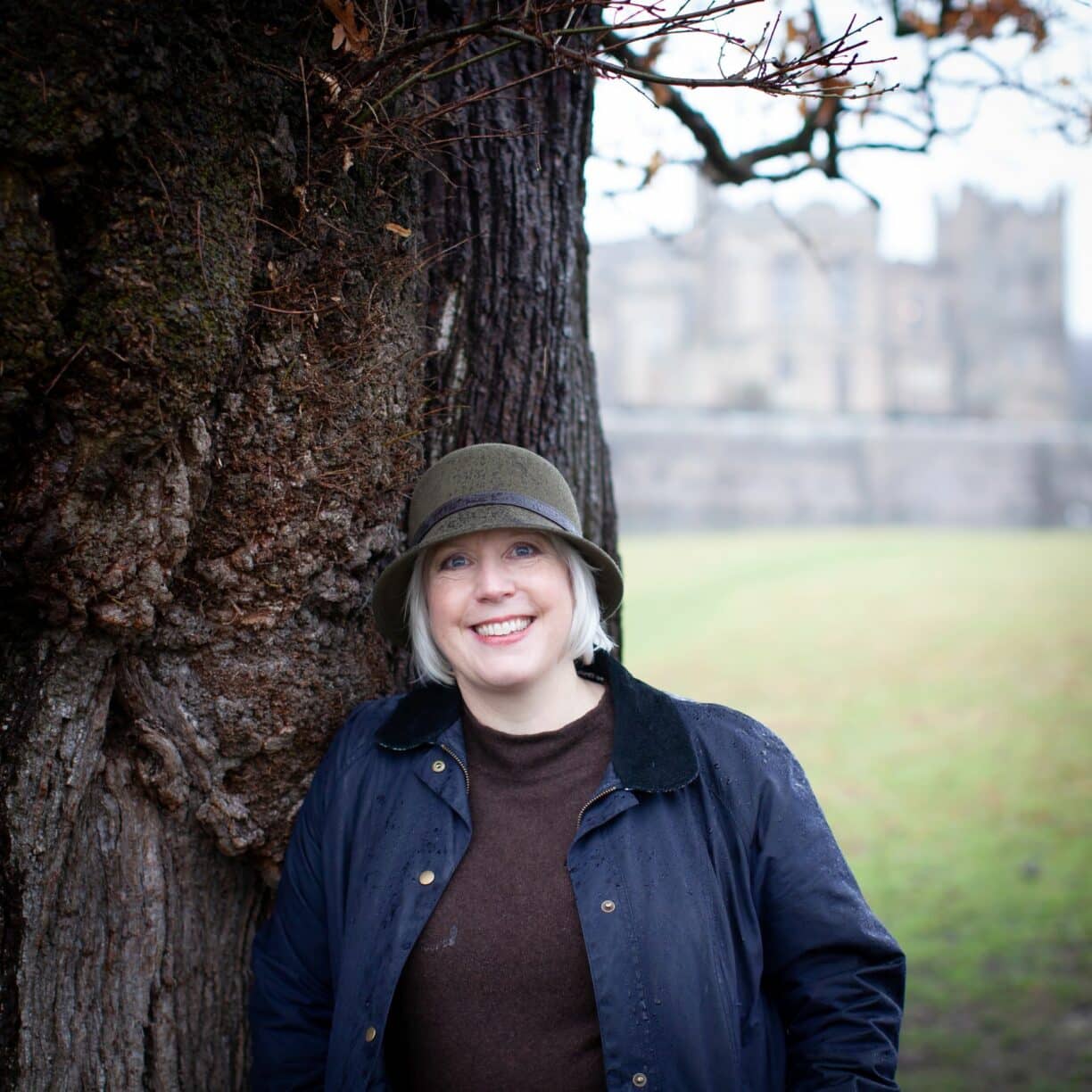Introducing The King’s Mother at Raby Castle.
In conversation with author Annie Garthwaite.
With only a couple of weeks to go until Raby Castle welcomes back author Annie Garthwaite to launch her latest novel, The Kings Mother, Raby’s Curator Julie Biddlecombe-Brown caught up with Annie to discuss her exciting new work. As The King’s Mother picks up the story of Cecily Neville long after she left her childhood home of Raby Castle, Julie was keen to learn more about how Annie has developed her character and those of the people she was surrounded by…..
Julie: Dear Annie, You’ve finished The King’s Mother! How fantastic! The Raby Team and our visitors loved Cecily and felt we really came to understand her better through your interpretation of her character. We’re really excited that you’ve chosen to launch The King’s Mother at Raby Castle, Cecily’s childhood home … but given this new book focuses on her later life – long after she left Raby – why were you so keen to come back to us? …. Not that we’re complaining!
Annie: Hi Julie, Where else but Raby?! I know Cecily left the castle when she began married life with Richard Duke of York, but the heritage of Raby – the strength she acquired and lessons she learned from her parents – never left her. You remember her father Ralph helped overturn a kingdom when he replaced the hapless Richard II with capable Henry IV right? Well, at the start of The King’s Mother, Cecily has done the same, overturning the disastrous rule of Henry VI to put her boy Edward on the throne. Lesson learned, Dad! But the thing I’m excited about with this new book is that we have not ONE powerful medieval woman, but FOUR! As the action opens, Cecily is triumphant as King’s Mother with her boy on the throne. But, in the years that follow, three other women will rise up – Marguerite of Anjou, Elizabeth Woodville, and Margaret Beaufort – to challenge her for their own boys. It’s exciting stuff! I know you’ll always champion Cecily as Raby’s daughter (me too!), but these other women are no less fierce, determined and – to Cecily – at least as dangerous!
Julie: Wow Annie, FOUR powerful medieval women, all equally ambitious for their sons, and for themselves and their legacy! You’re right of course, Cecily had learned from the best at Raby. Her mother Joan was the formidable half-sister of Henry IV and knew how to operate at the highest political levels. Like Cecily she was fiercely intelligent, an able administrator and deeply protective of her own children. One of Raby Castle’s 14th century towers is named after her and seems symbolic of her strength and fortitude. But going back to your ‘fab four’ … these women defy the stereotypical idea we have of aristocratic women in medieval England – busy every day with nothing but prayer and embroidery! In particular, ‘women of a certain age’ are often presented as passive players in history – look at the way Cecily is depicted by Shakespeare in Richard III! You’re turning that on its head!
Annie: Yes! It needs to be turned on its head! Shakespeare’s Cecily is old, pious and dull with no power or agency. It’s a misrepresentation of her that’s stuck – but it couldn’t be further from the truth! Cecily survived for 80 tempestuous years at the heart of a vicious and violent political system and through multiple regime changes. She championed the causes of both her royal sons – Edward and Richard – and drove their careers towards kingship. To my mind, she’s one of the most significant people – of either sex – in 15th century politics. In fact though, watch out for all four of these women. They drove the political agenda during the Wars – absolutely in the thick of it! Let me put it this way; The King’s Mother begs a question: Did Henry VII bring down Richard III to end the House of York? Or was it Margaret Beaufort that brought down Cecily to achieve that goal? Certainly, Henry won at Bosworth, but he’d never have made it to the battlefield without his mother’s behind the scenes manoeuvrings. Quite simply, it’s impossible to understand the Wars of the Roses without considering the motives and machinations of these women. And it all began at Raby!
So we definitely get the women in this book – but we also tackle some of English history’s most baffling mysteries: Was Edward IV’s marriage bigamous and his children bastards? Why did Edward have his brother George executed years after forgiving him for treason? Did Richard III murder his way to the throne and kill the Princes in the Tower? The women were there, and they know the truth…
Julie: ‘They know the truth…’ Yes! Women weren’t on the sidelines watching events unfold they were in the thick of it. I’m always amazed at the barrage of criticism we get whenever a so-called feminist perspective is suggested. This reading of history is completely logical and highly evidenced. Contemporary sources make it clear that Cecily in particular was a powerful and influential figure in the Royal court – indeed, she acted as something like a regent on her son Edward IV’s behalf. When I read Cecily (and from my sneak preview of The King’s Mother), I find your four women utterly relatable in their feelings and responses (especially in defence of their sons), yet also firmly grounded in the 15th century. Having worked with history over a 30-year career, I appreciate that it can be challenging to find the voices of women in the sources for this period, and even more so here, because so much of the contemporary evidence for the House of York no longer survives. Frustratingly, even at Raby Castle we have no archival records from this period, although those records must have existed. Yet in reading your books, it’s clear that deep research underpins your fictionalisation of Cecily’s life – so much so that it is easy to forget at times that your genre is historical fiction! How do you strike this balance in your writing to enable your characters and story to take shape and become real within a framework of historical credibility? Do you have any ‘go-to’ historians or other sources to help accurately portray the period whilst still allowing you the creative freedom to tell a gripping story?
Annie: Well, for sure I’m not a historian – or at least I have no formal training as one. But I have a commitment to historical truth (let’s not pretend a thing happened if we know it didn’t). But there are so many things in the histories of these women that we don’t know or are unsure of, that an author has to fill in the gaps. I do that by saying to myself, okay, if we know A and we know C, what might B have been, based on balance of probability and what we know of the personality of the character involved? It often feels I’m riffling through the historical record, not only to find out what happened, but to form as detailed a picture as I can of a character’s world view, of their motivations, ambitions, desires and fears. That picture becomes the bedrock for creativity.
For sure I’ve got go-to historians. Lots of them. Matthew Smith, Joanna Laynesmith and Nicola Tallis to name a few. They’ve been immensely helpful but finally – as a novelist – you have to take that creative leap alone. I’ve also been inspired by Philippa Langley. It seems to me she’s ‘democratised’ historical research by bringing it out of the universities and into the field – pulling together a global team of archivists and researchers to uncover new evidence. A single historian, working alone in a single institution would have found it nigh on impossible to achieve what she has. Someone has called it ‘crowd-sourced history’. I guess that’s what it is. And, if it’s taken on with intellectual rigour and due diligence, it can change our view of past events and our way of ‘doing history’.
Julie: And, of course, Philippa is going to be with us at Raby on 8 July. Is that a highlight for you?
Annie: Absolutely! She has a passion for this period that’s utterly intoxicating! But, I’m also looking forward to everyone else who is going to be there. This will be the first time I speak about The King’s Mother in public and I can’t wait to hear what people have to say! I’ll talk about the book, for sure but, for me, the best bit is always getting the audience involved in the conversation – finding out what they think and what questions pre-occupy them. But, you know, put aside the history for a moment, at its heart this is a novel about mothers and the lengths they will go to defend their children. And that’s a subject everyone can relate to – lovers of 15th century history or not!




